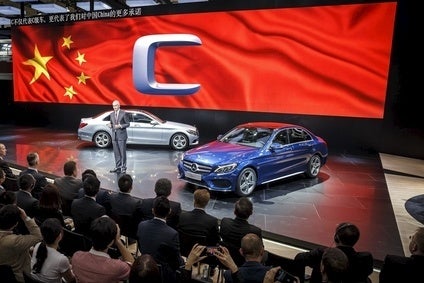China’s ongoing investigation into anti-competitive practices in the country’s automotive industry has picked up momentum in recent weeks, with some of the biggest companies in global automotive industry accused of abusing their market position.
Global household names including BMW, Mercedes-Benz, Audi, Toyota-Lexus, Honda, Jaguar Land Rover (JLR), Fiat-Chrysler and General Motors, have been accused by the National Development and Reform Commission (NDRC) of over-pricing for their goods and services, particularly in the aftermarket sector.
The NDRC also has been investigating widespread price collusion between automotive component manufacturers. A dozen Japanese spare parts companies, including NSK, JTEKT and NTN, are expected to be fined around USD200 million combined for colluding to set prices of parts sold to multinational automakers such as Toyota, Honda, Nissan, Suzuki and Ford.
This is less of a surprise, given the automotive component sector’s lengthy record of price fixing violations and huge fines in markets around the world, including a string of cases in the US earlier this year.
For component manufacturers, it is easier to imagine cases of price fixing between competitors in China. But for carmakers, the issue is less clear cut. It can be argued that car companies should be allowed to set their own prices and standards for their franchised dealers.
Carmakers have so far not openly discussed or argued their cases in a Chinese court, undoubtedly for fear of even harsher treatment by the Chinese authorities. So it is not easy to gauge the legal merits of the NDRC investigations.
Car prices can vary significantly between world markets due to different levels of local taxes and duties. The price of executive cars sold by European luxury car manufacturers such as BMW, Audi and Mercedes-Benz are generally around 15-20% higher than the same models sold in the Eurozone. VAT in China is 17% and an additional consumption tax of between 9-20% is also levied on cars with engines over 2-litres.
The European Union Chamber of Commerce and equivalent organisations in the US have questioned whether it is mostly foreign companies that are being targeted by the NDRC, while others are questioning the lack of legal process.
Domestic companies do get investigated by China’s antitrust authorities, but often these cases are not so widely publicised and the outcome of the investigations and legal processes less well known.
The NDRC has openly admitted that if companies under investigation readily admit guilt and take early corrective action, any sanctions such as fines are likely to be minimised.
The opposite would be very likely if a company chose to challenge the antitrust body in court, which has the authority to impose fines of between 1-10% of the previous year’s revenues in this market.
For any carmaker, the maximum fine would be hugely excessive and hard to contemplate. All foreign vehicle manufacturers investigated so far have moved quickly to reduce some new car prices and aftermarket charges as a first move to appease the NDRC. They are yet to be officially informed about the fines.
China has become a hugely important market for most global carmakers. It is now BMW’s largest single worldwide, with last year’s 391,000 sales accounting for close to 20% of the group’s global volumes and around 50% of global earnings by some estimates.
Mercedes-Benz sold 228,000 cars, while Audi sold over 400,000 units. Together, German automakers accounted for around 80% of luxury car sales in China. Foreign brands overall accounted for almost 60% of total light passenger cars in the country, or close to 11 million units, and they continue to gain market share.
The NDRC has accused foreign automakers of imposing restrictions on their franchised dealers, in areas such as pricing and sourcing of spare parts. It is also thinking of recommending a new regulatory framework to help protect consumers.
Servicing and spare parts process are notoriously over-inflated at luxury brand aftermarket outlets anywhere in the world, but research carried out by local insurance companies shows that this is more so the case in China.
In some cases, the cost of spare parts was estimated to be 1,200% the price of original equipment. In the West, this figure is understood to be closer to 300%.
Given what’s at stake in China, it is little wonder that foreign automotive companies choose a policy of appeasement here.







